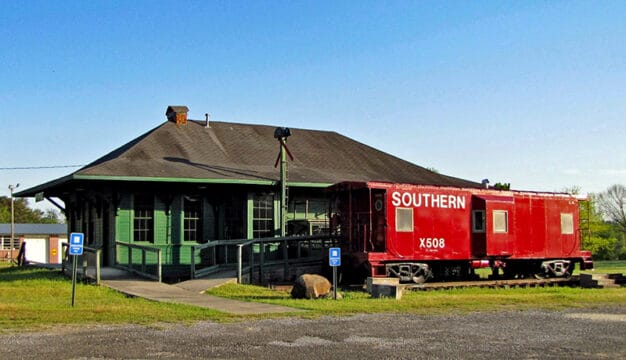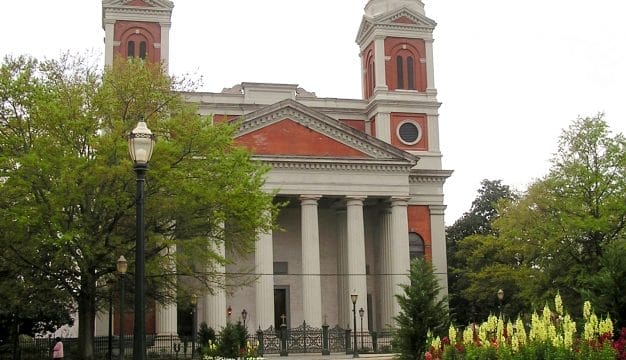Martha Sawyer Gielow
Martha Sawyer Gielow (1860-1933) contributed to literature in Alabama through a variety of genres, including collections of slave narratives, poems and songs, newspaper articles, educational treatises, children’s stories, novels, and lectures. Some of the dominant themes in her works of fiction were nostalgia for plantation life and the merits of education. Whereas much of her writing paid meticulous attention to developing characters by way of regional dialect, it also attempted to counteract stereotypes of white Alabamians and former slaves.
Gielow was born to Enoch and Sophia E. (Barkley) Sawyer of Greensboro, Hale County, in 1860. Her childhood home, the Sawyer-Benners-Jones House, built in 1835 by her father, still stands at 2104 Main Street in Greensboro and is noted for its detailed wood carvings and typical plantation-house floor plan. Gielow’s experiences in her childhood home had a profound effect on the settings, characters, and ideology of her literary works. The only other place to have as much of an effect on Gielow’s work was Washington, D.C., where she also resided.
Martha Sawyer married Henry J. Gielow on February 4, 1880; the couple would have two children. Gielow separated from her husband in the mid-1890s (a case partially reported in an 1896 New York Times article).
In addition to narratives about plantation life, Gielow presents yarns, songs, poems, even recipes from plantation culture.
After the turn of the century, Gielow founded and was director of the Southern Industrial Educational Association (SIEA), which promoted industrial education among the impoverished, uneducated mountain people of the Appalachian region.
Works by Gielow
Mammy’s Reminiscences and Other Sketches (1898)
Old Plantation Days (1902)
Old Andy, the Moonshiner (1909)
Uncle Sam (1913)
The Light on the Hill (1915)
Child Training in the Realm of Thought (1919)
The Whispering Fairy: Constructive Stories for Children (1923)


